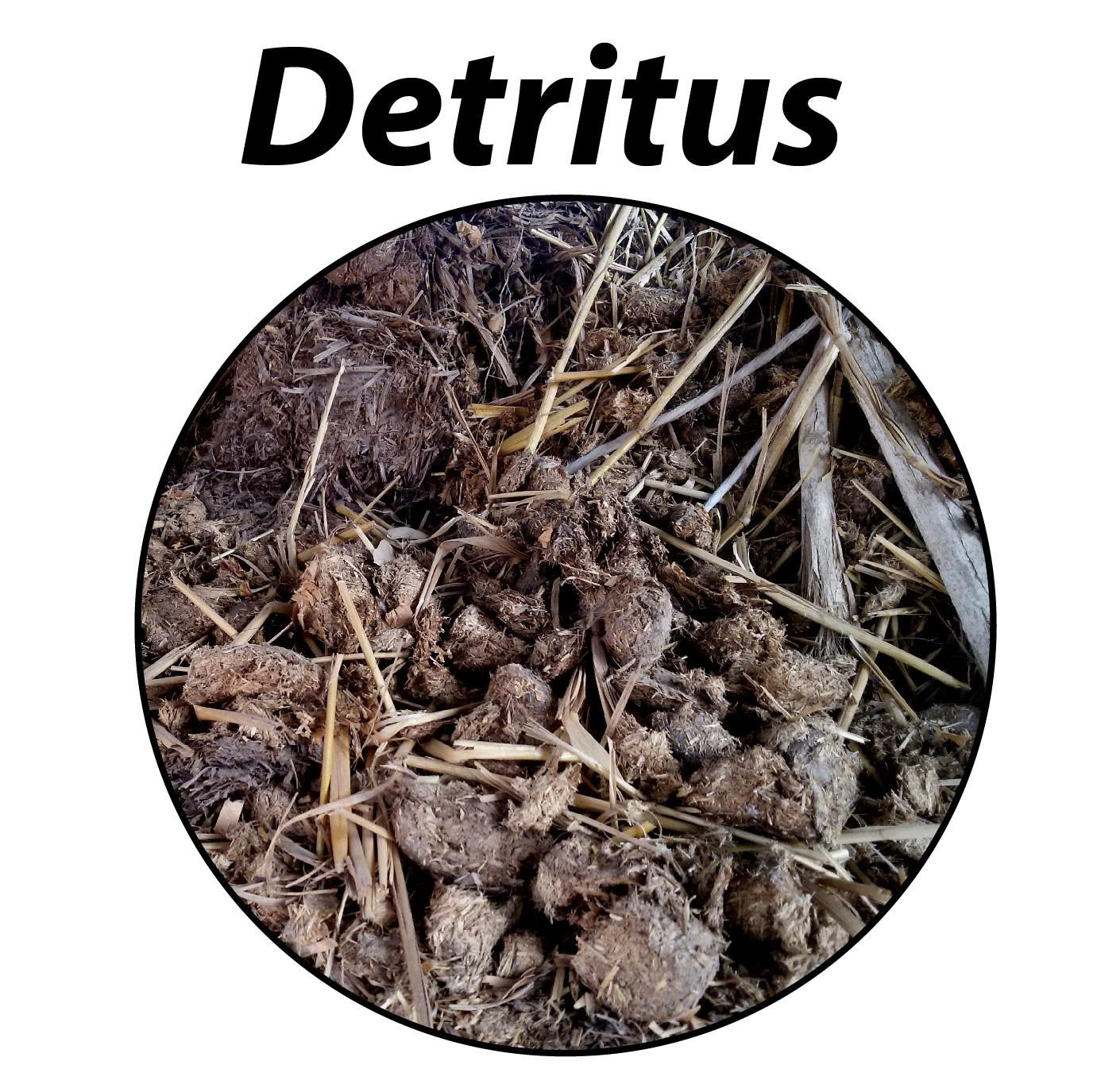
What is detritus?
Answer
583.2k+ views
Hint: The organic matter produced from those organisms that are no more living. It can include their fecal matter or various body parts. They may form compost or manure that increases the fertility of the soil when mixed into it.
Complete step by step answer:
The detritus are the dead organisms that may include plants or animals both. When these organisms die then the microorganisms act on their bodies resulting in the formation of dead organic particulate matter. This organic matter may be formed from the decomposition of various body parts or the fecal matter of the dead organisms.

The process of decomposition involves various microorganisms like bacteria, fungi, etc to feed on the body of the dead organism and absorb their nutrient materials such as carbohydrates, proteins, fats, vitamins, and minerals that are easily available while those that complex materials may take some time to break down.
Additional information:
When the microorganisms feeding on the dead matter dies then they mix with the soil and at the time of grazing various animals feed on the grasses may consume these dead microorganisms with the grasses. These microorganisms along with their organic matter then go to the stomach and intestine of the grazers which is then excreted out by them through their fecal matter. This again mixes with the soil and the organic matter against returns in the soil along with some added matter. This is called detritus and is used by other organisms in the forms of nutrients.
Note: The detritus in the case of the terrestrial ecosystem are found in the form of leaf litters and other forms of organic matter that is then mixed with the soil and then turns into soil organic matter. While in the case of the aquatic ecosystem the detritus is found as suspended organic matter in the water bodies and gets accumulated at the floor of the water bodies which is termed as ‘marine snow’.
Complete step by step answer:
The detritus are the dead organisms that may include plants or animals both. When these organisms die then the microorganisms act on their bodies resulting in the formation of dead organic particulate matter. This organic matter may be formed from the decomposition of various body parts or the fecal matter of the dead organisms.

The process of decomposition involves various microorganisms like bacteria, fungi, etc to feed on the body of the dead organism and absorb their nutrient materials such as carbohydrates, proteins, fats, vitamins, and minerals that are easily available while those that complex materials may take some time to break down.
Additional information:
When the microorganisms feeding on the dead matter dies then they mix with the soil and at the time of grazing various animals feed on the grasses may consume these dead microorganisms with the grasses. These microorganisms along with their organic matter then go to the stomach and intestine of the grazers which is then excreted out by them through their fecal matter. This again mixes with the soil and the organic matter against returns in the soil along with some added matter. This is called detritus and is used by other organisms in the forms of nutrients.
Note: The detritus in the case of the terrestrial ecosystem are found in the form of leaf litters and other forms of organic matter that is then mixed with the soil and then turns into soil organic matter. While in the case of the aquatic ecosystem the detritus is found as suspended organic matter in the water bodies and gets accumulated at the floor of the water bodies which is termed as ‘marine snow’.
Recently Updated Pages
Master Class 12 Economics: Engaging Questions & Answers for Success

Master Class 12 Physics: Engaging Questions & Answers for Success

Master Class 12 English: Engaging Questions & Answers for Success

Master Class 12 Social Science: Engaging Questions & Answers for Success

Master Class 12 Maths: Engaging Questions & Answers for Success

Master Class 12 Business Studies: Engaging Questions & Answers for Success

Trending doubts
Which are the Top 10 Largest Countries of the World?

What are the major means of transport Explain each class 12 social science CBSE

Draw a labelled sketch of the human eye class 12 physics CBSE

What is a transformer Explain the principle construction class 12 physics CBSE

Why cannot DNA pass through cell membranes class 12 biology CBSE

Differentiate between insitu conservation and exsitu class 12 biology CBSE




